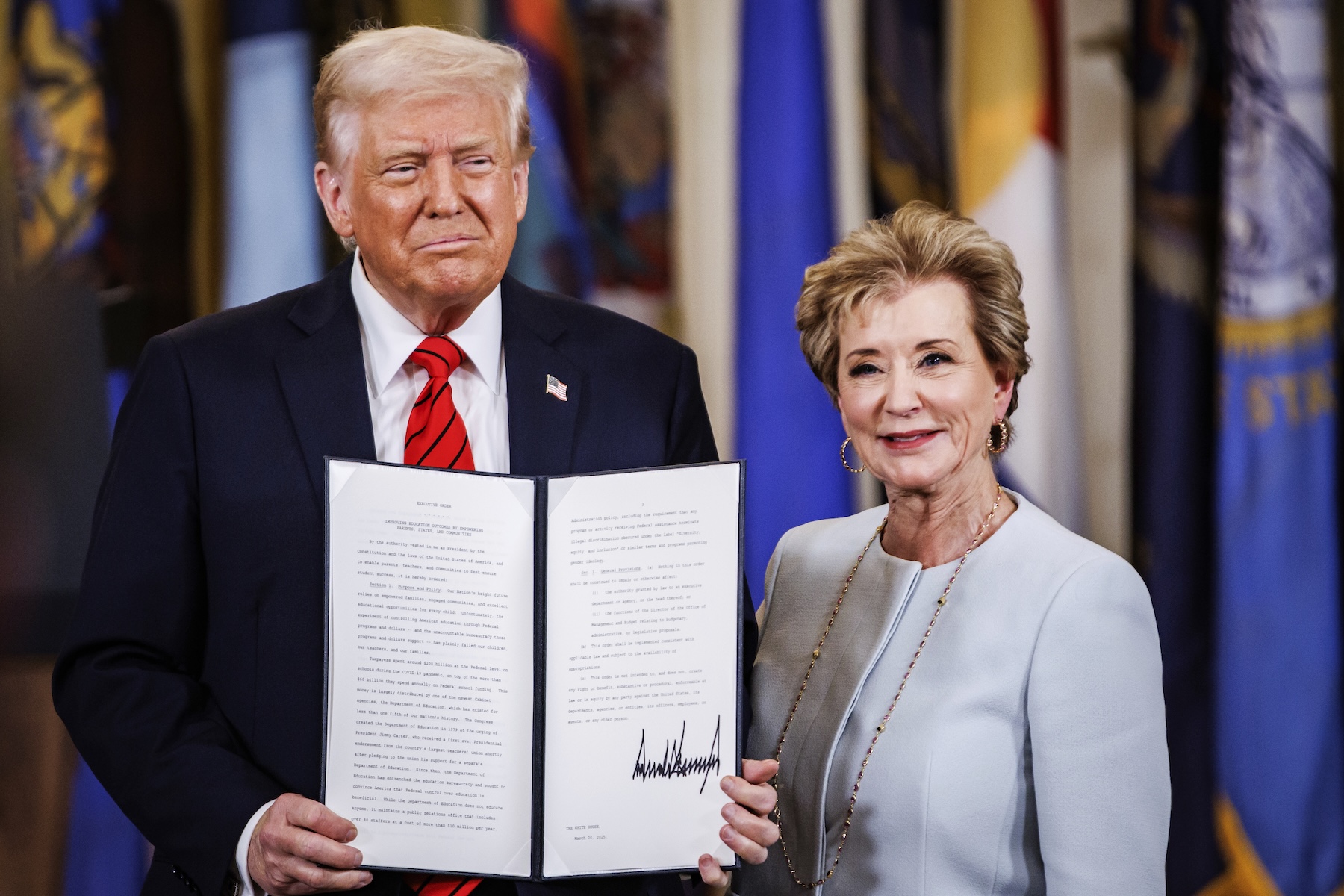21 States Sue Trump Administration Over New PSLF Rule


A coalition of 21 Democratic-led states and the District of Columbia filed a lawsuit on Monday in federal court to block a controversial new rule that would redefine who qualifies for the Public Service Loan Forgiveness (PSLF) program. This comes shortly after a group of cities and non-profit organizations also filed a lawsuit for the same reasons.
The complaint is Commonwealth of Massachusetts et al. v. U.S. Department of Education and Linda McMahon (PDF File). The states contend that the Trump Administration has overstepped its legal authority and politicized a long-standing bipartisan program that relieves student loan debt for government and nonprofit workers.
The final rule, published on October 31, 2025, and scheduled to take effect July 1, 2026, gives the Secretary of Education power to disqualify any government or nonprofit employer deemed to have a “substantial illegal purpose.” This was based on an executive order signed by President Trump back in March.
The department lists several examples, including:
Critics note that these categories track closely with issues the administration has targeted in other policies. The complaint states that “the only forms of ‘illegality’ named are a cherry-picked list of this Administration’s most disfavored groups and activities, including support for immigrants, gender affirming care, diversity, equity, and inclusion initiatives, and political protest.”
By giving the Education Department discretion to interpret those terms, the states argue, the rule effectively allows the federal government to strip PSLF eligibility from entire sectors (such as sanctuary jurisdictions, immigrant-rights nonprofits, or universities with DEI programs) based solely on political disagreements.
The 47-page complaint, filed by attorneys general from Massachusetts, New York, California, Colorado, Illinois, Maryland, Washington, and 15 other jurisdictions, rests on two main claims:
The filing adds a constitutional claim as well, asserting that the rule violates First Amendment protections by punishing public employers and nonprofits for their speech and advocacy.
Created in 2007 with bipartisan support, the PSLF program allows borrowers who make 120 monthly payments while working full-time for a qualifying government or nonprofit employer to have their remaining federal student-loan balance forgiven.
The program has forgiven more than $85 billion for over one million borrowers, including teachers, firefighters, social workers, and nurses. Many states rely on PSLF as a recruitment tool for hard-to-fill public positions.
The new rule, the plaintiffs argue, threatens that foundation. If a state or city government is deemed to have an “illegal purpose” – for example, offering sanctuary protections to immigrants or funding public-health programs that include gender-affirming care – its employees could lose PSLF eligibility. Borrowers who have spent years making qualifying payments could be forced to start over or abandon forgiveness altogether.
Where is is especially challenging are big employers like the City of Los Angeles – who may have schools, a hospital, firefighters and police officers, all employed by the city. If one area is found to have an “illegal purpose”, all employees could lose.
The multi-state coalition is asking the court to vacate the rule, declare it unlawful, and bar the Department from enforcing it. The states also seek declaratory relief affirming that the Higher Education Act leaves no room for the “illegal-purpose” test.
The Education Department has not yet filed a response, but officials are expected to argue that the rule falls within the agency’s authority to ensure program integrity.
Because the rule does not take effect until July 2026, the courts are likely to hear motions for preliminary injunctions in the next several months (after the government shutdown is over), setting up one of the most consequential legal tests for federal student loan policy since the Supreme Court struck down the 2023 debt cancellation plan.
Don’t Miss These Other Stories:

It was a busy week for RIA aggregators. There were a few large moves, including $235 billion multi-family office Cresset...

Hindus (70%) and Jews (65%) are the most highly educated religious groups in the United States, far above the national...

The difference between investors who build generational wealth and those who lose their shirts comes down to one critical skill:...